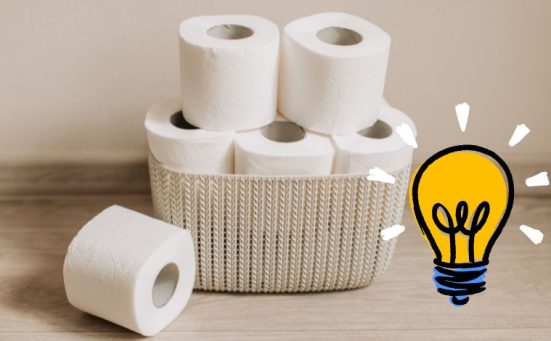
Why Your Washing Machine Smells (even after cleaning it)
Have you ever noticed a persistent unpleasant smell lingering in your washing machine, even after giving it a thorough clean? We know how frustrating this can be, especially after spending all that time wiping and running a cleaning cycle. But what even causes this to happen?
If your washing machine still smells after cleaning it, the odour could be caused by different reasons, such as mould or mildew buildup, bacteria buildup, soap residue, leaving damp clothes in the washer, drainage issues, or infrequent use of the machine.
Thankfully, we can always remove the foul odours by running a hot wash cycle, using specialised cleaners or household products, doing another clean, ventilation, and other methods.
Let’s learn more about why this happens and how you can prevent this issue in this article.
Reasons Why Your Washing Machine Smells After Cleaning It
When you open your washer’s door, are you greeted by an awful smell? If after cleaning it the odour is still there, you may need to do another cleaning session.
However, to address the issue effectively and make your washing machine smell good again, it’s important to know exactly what’s causing the foul odour in the first place.
Here are the possible culprits:
Mould, Mildew, Or Limescale Buildup
Mould and mildew thrive in damp, dark environments, making the hidden corners of your washing machine an ideal breeding ground. These fungi not only emit a musty odour but can also pose health risks.
The rubber gasket around the door, particularly on front-loading washers, is a hot spot for moisture and consequently, mould growth.
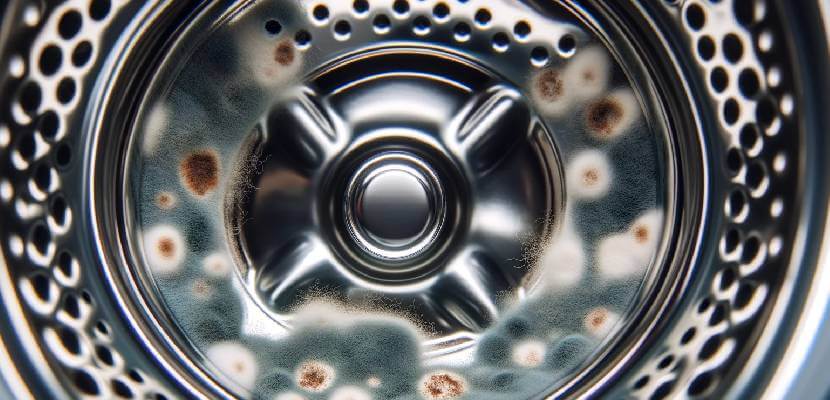
Also, if you have hard water in your area, it’s common for your appliances to have mineral deposits. Limescale can easily be the cause of the foul smell, as it can encourage bacterial growth.
Bacteria Buildup
Bacteria are another culprit for bad smells. They can easily accumulate in parts of the machine where water pools or doesn’t completely drain.
These microorganisms can produce a foul smell that’s hard to ignore, especially around the washer’s drum or in the drain hose. Unfortunately, bacteria in your washer can also start breeding on your clothes, which could make them smell foul and even irritate your skin.
Soap Buildup
Using too much detergent or non-compatible soaps can lead to soap buildup inside the machine.
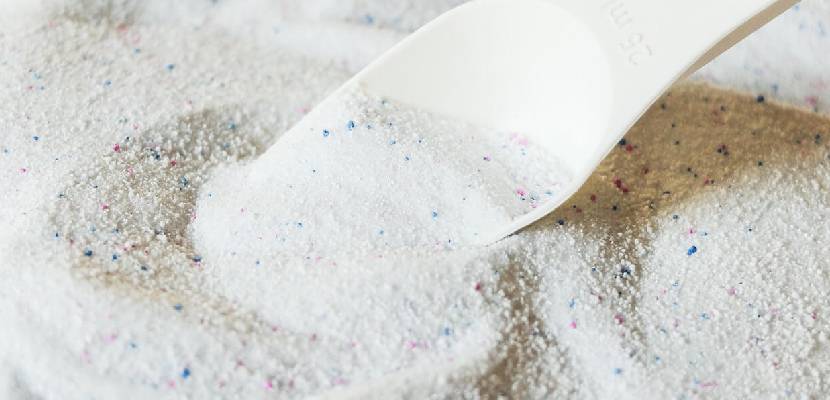
Over time, this residue can create a film on the walls and components of your washer, trapping odour-causing bacteria and mould. Make sure to read the user manual of your washing machine to learn the recommended amount of detergent to use, depending on the load of your laundry.
Leaving Damp Clothes In The Washer
It’s easy to forget a load of laundry in the machine, but leaving damp clothes in the washer can lead to a build-up of mildew and bacteria, which can emit a pungent smell.
This odour can persist even after removing the clothes and running an empty cycle.
SEE ALSO: Left Clothes In Washer Overnight? (here’s what you need to know)
Drainage Issues
Proper drainage is crucial for preventing odours. If your machine isn’t draining correctly, it could be due to a clog in the drain hose or a problem with the pump.
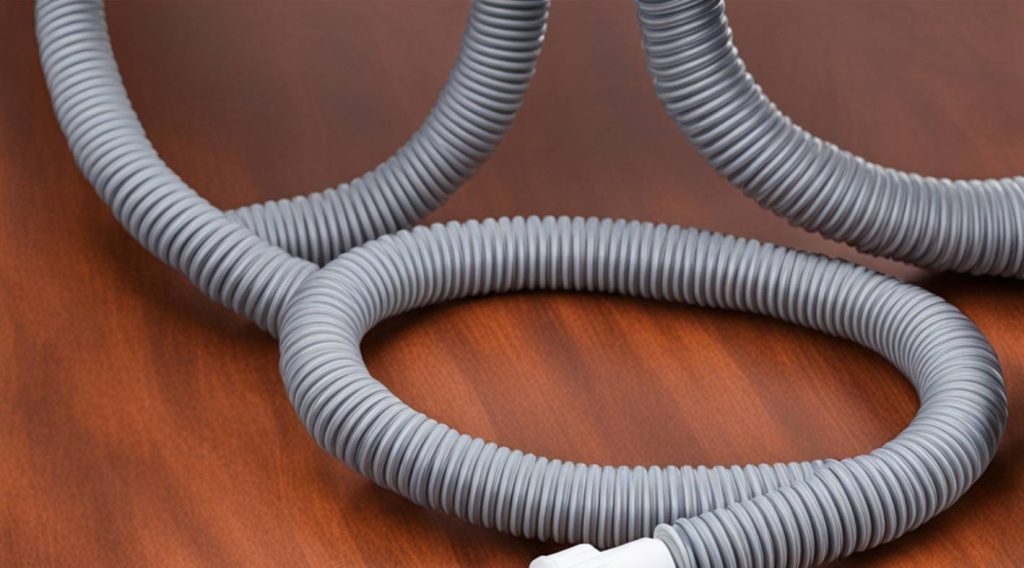
Stagnant water in the washer can lead to odours over time.
Not Using The Machine Frequently
If you don’t use your washing machine often, standing water or residue can start to smell. Frequent use helps flush out lingering debris and keeps the internal components fresh.
Make sure to frequently use the washer and ventilate every now and then to keep it clean and dry.
Effective Ways To Remove Foul Smells In A Washing Machine
Now that you know the possible reasons why your washer is smelling foul and hopefully, have identified the actual culprit, here are the most effective methods to make your machine smell fresh again:
Running A Hot Wash Cycle
A simple yet effective way to combat washing machine smells is to run a hot wash cycle without any clothes. Doing so will help dissolve any oily residues or buildups in your washer.
For enhanced cleaning, add a cup of bicarbonate of soda to the cycle to break down the residue more effectively.
Using A Washing Machine Cleaner
Commercial washing machine cleaners are formulated to tackle the grime and odour-causing residues inside your washer. For example, descalers work great in removing hard water deposits, and some even have properties that kill mould and mildew.
- Say hello once again to an odourless washing machine and clean, fresh smelling clothing with this 2-in-1, powerful washing machine cleaner and descale
- Many washing machines produce smelly odours due to the build-up of mildew, bacteria and mould from soap scum
Make sure to follow the manufacturer’s instructions for use to get the best results.
Using White Vinegar
White vinegar is a wonderful household product when it comes to neutralising odours. It’s even popular for being a natural cleaner that can kill mould and bacteria.
Just pour a cup of white vinegar into the detergent drawer and run a hot cycle to clean the interior of the washer effectively.
Cleaning The Seal And Detergent Drawer
Rubber seals and detergent drawers are the most likely spots for mould and detergent buildup. This is because they are often damp, which bacteria and fungi love.
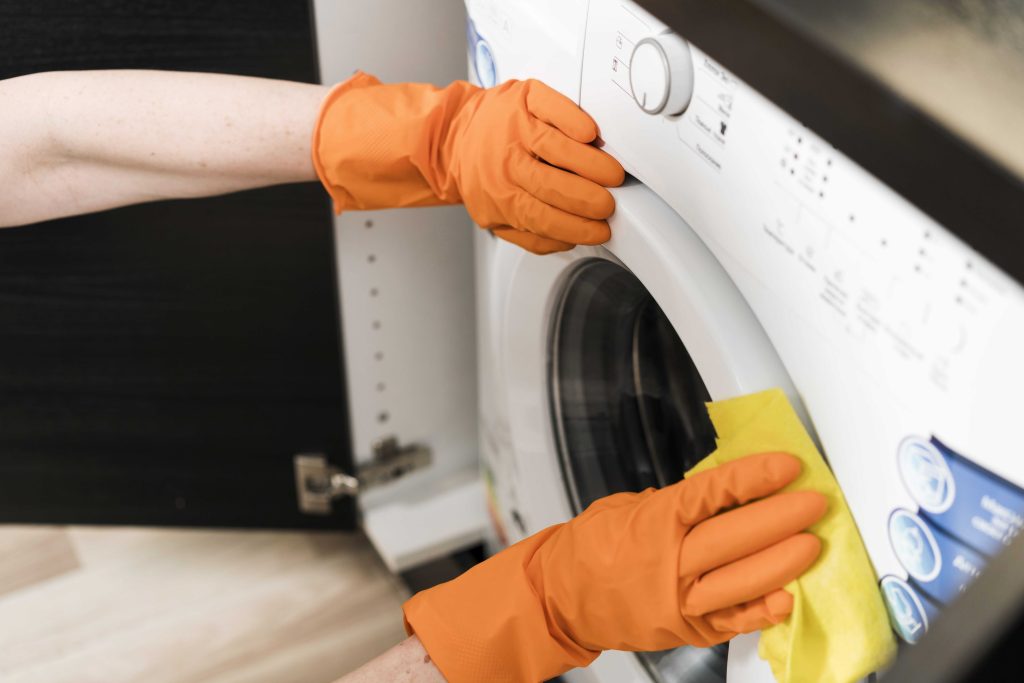
To get the smell off, wipe down the seal with a mildew cleaner or white vinegar, and remove the detergent drawer to soak and scrub it clean. Make sure to read the instructions in the user manual to prevent damage.
Checking And Cleaning The Filter
Many people forget about the washing machine filter, which can collect hair, debris, and soap scum, leading to smells.
Check your washer’s manual to locate the filter, then clean it thoroughly. This usually involves removing the filter and rinsing it under warm, soapy water. Use an old toothbrush to remove stubborn dirt by scrubbing its surface gently.
Leaving The Door Open
After each wash, leave the door of your washing machine open to allow it to air out. It doesn’t have to be fully open, just leaving the door slightly ajar will do the job.
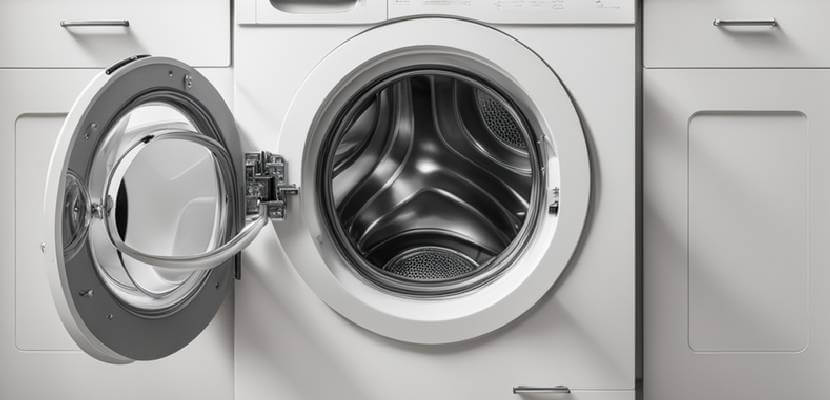
Doing this prevents excess moisture from becoming trapped inside, which can lead to mould and mildew.
Using the Correct Amount of Detergent
Using too much detergent can leave loads of residue behind. Make sure to measure the detergent according to the manufacturer’s recommendations and consider the water hardness in your area.
Also, if you have a high-efficiency (HE) washing machine, make sure to use the appropriate detergent to prevent buildup. HE detergents are formulated to produce fewer suds, which is necessary because HE washers use less water than regular washing machines.
DID YOU KNOW? Using liquid detergent results in less detergent buildup, as it dissolves easier in the water compared to the powdered variants.
Doing Regular Maintenance Checks
Regularly inspect and maintain your washing machine to prevent issues before they start. This includes checking hoses, filters, and electrical connections.
As with other situations, prevention is the key!
SEE ALSO: How To Clean A Washing Machine Like A Pro: Quick & Easy Guide
Bonus Tips For Maintaining A Fresh-Smelling Washing Machine
Before we end this article, it wouldn’t be right if we didn’t share a few tips to make your washing machine smell fresh and function efficiently. After all, it’s not CheckAppliance without the bonus tips!
Here you go:
Have A Monthly Cleaning Routine
Establish a monthly cleaning routine for your washing machine. This includes running an empty hot wash cycle with a washing machine cleaner or natural alternatives like bicarbonate of soda and vinegar. This routine will help prevent the accumulation of residues and odours.
Keep The Area Around The Machine Clean
Dust and debris around the washing machine can eventually make their way inside the machine. Keeping the area clean will not only help in maintaining the machine but also improve the air quality around it.
Balance Your Loads
Unbalanced loads can cause the washing machine to work harder, which can lead to quicker wear and tear and potentially more odours as the machine struggles to efficiently clean and rinse clothes. Make sure that you balance your loads to promote effective cleaning and machine longevity.
Check For External Factors
Sometimes, the source of the odour might not be the washing machine itself but related to external factors like the condition of your water supply or issues with the plumbing connected to your machine. It might be helpful to investigate these areas if problems persist despite thorough cleaning.
Educate Everyone At Home
Make sure everyone in your home knows how to use the washing machine properly. This includes using the right amount of detergent, not overloading the machine, and removing clothes promptly after washing.
Call A Pro If Necessary
If odours persist or you notice other issues with your washing machine (such as noise or leaks), it might be time to call a professional. A qualified technician can assess and resolve issues that are not as easily accessible or fixable on your own.
By following the tips above, you are doing what you can to ensure that your washing machine remains not only odour-free but also in good working condition.
Do you have questions? Feel free to leave a comment below!
Frequently Asked Questions
Your washing machine smells after being cleaned because of mould, mildew, or limescale buildup, bacteria accumulation, soap residue, damp clothes left in the machine, drainage issues, or infrequent use which can prevent proper drying and promote odour-causing agents.
To remove the bad smell from a washing machine, run a hot wash cycle without clothes, use a washing machine cleaner or natural cleaners like bicarbonate of soda or white vinegar. Additionally, clean the seal and detergent drawer, and ensure the filter and drainage system are clear and functioning properly.
Your clean laundry still smells because bacteria or mould may be growing in your washing machine, particularly in damp areas or where residue collects, such as the gasket, detergent drawer, or drum. Using too much or the wrong type of detergent can also leave residues that harbour odours.
To disinfect a washing machine, run a hot cycle with a cup of white vinegar or a suitable disinfectant in the detergent drawer. Make sure to also clean and scrub the detergent drawer, rubber gasket, and any filters to remove mould, mildew, and bacterial buildup.
Yes, you can remove mildew from your clothes. Start by brushing off any mildew spores outside to avoid spreading them indoors. Then, pre-soak the garments in a solution of hot water and laundry detergent or a mixture of vinegar and water. Wash them at the highest temperature safe for the fabric, using a good quality detergent. Air dry for best results.
Also, follow us on Pinterest ...



